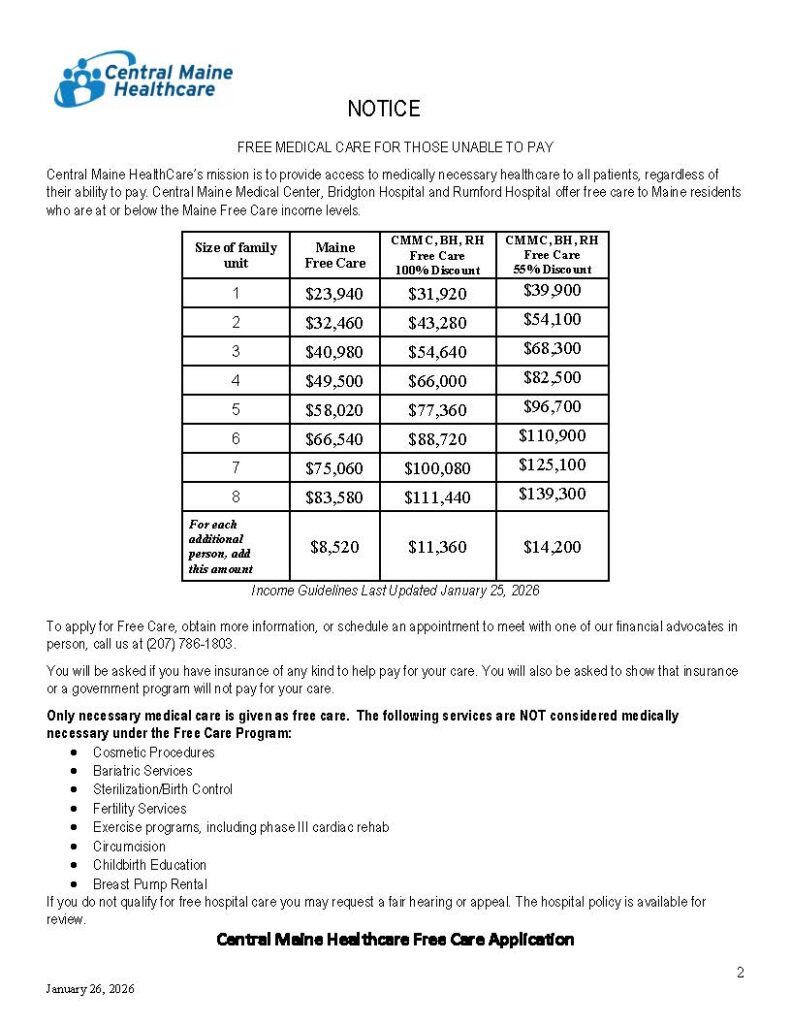Medical Billing Terms
Copayment: A fixed payment the patient pays each time they visit a health plan clinician or receives a covered service.
Deductible: More typical in traditional health insurance, a fixed amount the patient must pay each year before the insurer will begin covering the cost of care.
Fee-for-service: The traditional method of paying for medical services. A provider charges a fee for each service given, and the insurer pays all or part of that fee. Sometimes the patient pays a copayment for each visit to the provider.
Health Maintenance Organization (HMO): An organization that offers healthcare services in exchange for fixed monthly payments. Most HMOs provide care through a network of hospitals, doctors and other medical professionals, which members must utilize to receive coverage for their care.
Managed Care Organization: An umbrella term for HMOs and all health plans that provide health care in return for set monthly payments and coordinate care through a defined network of primary care providers and hospitals.
Network: The doctors, clinics, health centers, medical group practices, hospitals, and other providers that an HMO, PPO, or other managed care plan has selected and contracted with to care for its members.
Out-of-network: Not in the HMO’s network of selected and approved providers and hospitals. HMO members who get care out-of-network (sometimes called out-of-area) without getting permission from the HMO to do so may have to pay for all or most of that care themselves. Exceptions are usually made for extreme emergencies or urgent care needed when traveling from home.
Point-of-Service (POS) Plan: A type of HMO coverage that allows members to choose to receive services either from participating HMO providers, or from providers outside the HMO’s network. In-network care is more likely to be fully covered; for out-of-network care, members pay deductibles and a percentage of the cost of care, much like traditional health insurance coverage.
Practice Guidelines: Carefully developed information on diagnosing and treating specific medical conditions. Practice guidelines, usually based on clinical literature and expert consensus, are designed to help providers and patients make decisions, and to help a health plan evaluate appropriateness and medical necessity of care.
Preferred Provider Organization (PPO): A network of providers and hospitals that provides care at a lower cost than through traditional insurance. PPO members get better benefits (more coverage) when they use the PPO’s network and pay higher out-of-pocket costs when they receive care outside the PPO network.
Preventive Care: Care designed to prevent disease altogether, to detect and treat it early, or to manage its course most effectively. Examples of preventive care include immunizations and regular screenings like Pap smears or cholesterol checks.
Primary Care: Preventive health care and routine medical care that is typically provided by a provider trained in internal medicine, pediatrics or family practice.
Primary Care Provider (PCP): A provider, usually an internist, pediatrician or family provider, devoted to the general medical care of patients. Most HMOs require members to choose a primary care provider, who is then expected to provide or authorize all care for that patient.
Referral: A formal process that authorizes an HMO member to get care from a specialist or hospital. To assure coverage, an HMO patient generally must get a referral from their primary care provider before seeing a specialist.
Specialist: A health professional whose training and expertise are in a specific area of medicine, like cardiology or dermatology. Most HMOs require members to get a referral from their primary care provider before seeing a specialist.

